
Obstructive sleep apnea significantly worsens mental health in older adults, increasing risks of depression and psychological distress over time.

Obstructive sleep apnea significantly worsens mental health in older adults, increasing risks of depression and psychological distress over time.
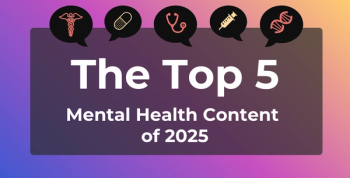
Check out the most popular stories and developments that happened in mental health care this year.

Baricitinib shows promising results for severe alopecia areata, with more than half of patients experiencing significant hair regrowth within a year.

Obstructive sleep apnea may increase Parkinson disease risk, but early CPAP treatment could significantly reduce this risk.
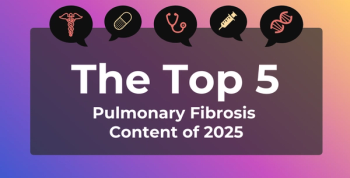
A look back at the breakthroughs in pulmonary fibrosis research, including FDA-approved treatments and innovative diagnostic techniques.

Trump secures new pricing deals with 9 drugmakers, advancing his effort to align US drug costs with Europe and expand direct-to-consumer purchasing.

New research reveals that quick sleep onset may lower hypertension risk, challenging traditional views on sleepiness and cardiovascular health.
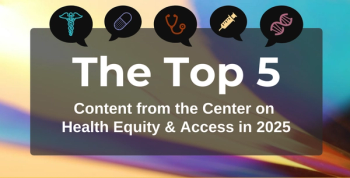
Reflect on the challenges in health equity, care access, and policy shifts impacting health insurance and clinical research in 2025.
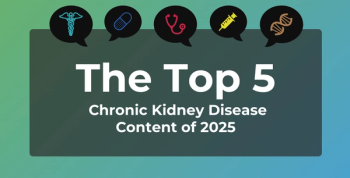
This year’s most-read articles on CKD highlighted research and insights on drug approvals, guidelines, and value-based care.

Psychotherapy is key in reducing risk of depression relapse when tapering antidepressant medication.

Cervical cancer screening adherence drops below 10%, highlighting confusion over evolving guidelines and significant disparities in HPV awareness.
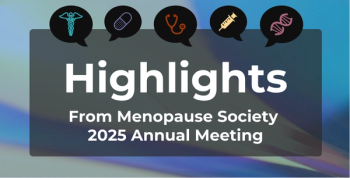
In case you missed it: the top 5 highlights from the Menopause Society's 2025 Annual Meeting.

Quality improvement programs markedly increase sleep apnea testing in stroke patients, showing effective ways to improve guideline-based care.

Public health dental hygienists expand dental care access and oral health education in underserved communities, improving overall health outcomes.

Explore innovative strategies in dental care that are enhancing access, promoting health equity, and improving community health in Pennsylvania.

Men's breast cancer awareness is crucial as it often goes unrecognized, leading to advanced stages at diagnosis, Michael Hassett, MD, explains.

Michael Hassett, MD, explains the evolving landscape of HER2-positive breast cancer treatment and the role of CDK inhibition in personalized therapy strategies.

Caregivers face communication challenges in coordinating patient care for older adults, highlighting the need for improved support and training.

Diet and wellness impact multiple sclerosis management, enhancing quality of life and reducing fatigue through lifestyle changes and holistic approaches.

Explore how the Veteran Affairs (VA) MS Centers of Excellence enhance veteran care through a hub-and-spoke model, telehealth, and groundbreaking research.

Nurse practitioners play an essential role in diagnosing, treating, and supporting individuals living with Alzheimer disease.

Early intervention and effective therapies are transforming multiple sclerosis management, enhancing patient outcomes, and delaying disability progression.

Darla Chapman, DNP, ARNP, University of Washington, speaks on the evolution of Alzheimer diagnosis, emphasizing early detection and innovative biomarkers.

Experts analyze how Trump's drug pricing policies, including Most Favored Nation (MFN) and tariffs, reshape pharma markets and impact patient costs and access.

Michael Hassett, MD, MPH, discusses the rise of oral therapeutics in breast cancer care, emphasizing patient support, education, and overcoming financial barriers for better outcomes.
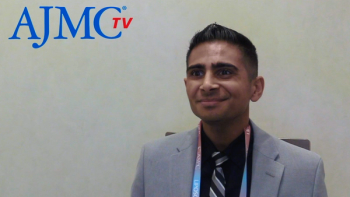
Online health discussions can influence patient behaviors, but misinformation spreads easily. Khush Kharidia, MD, UT Southwestern, explains how creator credibility impacts cholesterol-related health information.

ATLAS trial investigator Guy Young, MD, Children's Hospital Los Angeles and University of Southern California Keck School of Medicine, highlights the current treatment options for patients with hemophilia A or B, with or without inhibitors, since the FDA approval of fitusiran (Qfitlia; Sanofi).

New research demonstrates a swift directional relationship between food insecurity and increased anxiety and depression, highlighting the urgent need for interventions to improve mental health.

Sadie Dobrozsi, MD, of Evolent, discusses how predictive genomics is pushing cancer care into a new era of personalization

Europe seizes leadership in global health as US funding cuts create disparities, HHS is sued by multiple medical groups, and new findings highlight gaps in care.

259 Prospect Plains Rd, Bldg H
Cranbury, NJ 08512
© 2025 MJH Life Sciences®
All rights reserved.
